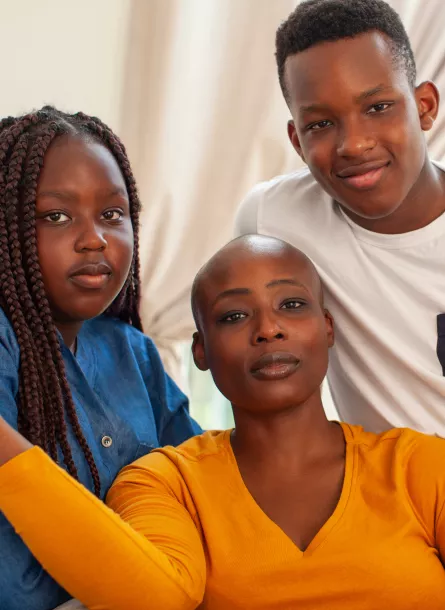
Genetics and inherited conditions
About 5-7% of colorectal cancer patients inherited a gene mutation that greatly increased their lifetime risk.


Genetics and your risk
What if you had a crystal ball that told whether you and your family are more likely to face colorectal cancer?
Unfortunately, we don’t have a crystal ball — or its medical equivalent — quite yet, but knowing about your family history and any hereditary genetic conditions can help you stay ahead of the game.
Cancer & genetics

Genetic conditions associated with colorectal cancer
The most common types of hereditary colorectal cancer are:
- Lynch syndrome
- Muir-Torre syndrome (MTS)
- MUTYH-associated polyposis syndrome (MAP syndrome)
- Familial adenomatous polyposis (FAP)
- Peutz-Jeghers syndrome
- Li-Fraumeni Syndrome
How do I know if I’m at risk?
There are three subgroups of risk for cancer.
Sporadic risk
If you fall into the sporadic group, which means you have no family history of cancer or inherited genetic predisposition, you have about a one in 24 chance of getting colorectal cancer.
Familial risk
If you have familial risk, meaning an immediate family member has the disease, your lifetime risk increases to 10 to 20 percent.
Hereditary risk
Those who have the highest lifetime risk of colorectal cancer are in the hereditary subgroup. Depending on the particular genetic syndrome, the chances of getting colorectal cancer may be 30 to 100 percent.

What can I do after I know my genetic risk?
Screening is the most important thing you can do to prevent colorectal cancer because it finds cancer in the early stages. Talk to your healthcare provider about your personal genetic risks.
Talk to your family
Exploring your family health historyTop resources

Legislation introduced to address young-onset CRC
Explore the urgent need for the Colorectal Cancer Early Detection Act (HR 7714), legislation aimed at combating the rising incidence of colorectal cancer among younger adults through enhanced screening, education, and research.

Christy Williams: Biomarker testing leads to successful treatment
Statistics suggested that Christy’s odds of survival were grim, so she leaned into her faith and kept a positive outlook. She tried to control what she could. And, critically, she received biomarker testing.

Dak Prescott joins Alliance to ‘LEAD FROM BEHIND’
Initiative aims to reduce stigma and educate about screening choices, as the Colorectal Cancer Alliance launches a health equity fund to decrease disparities.





